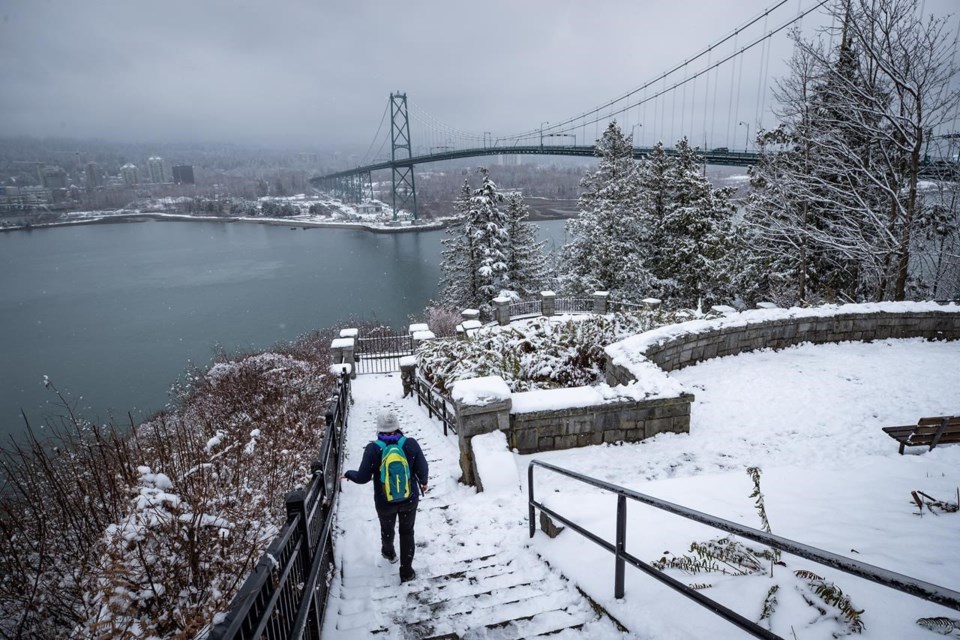VANCOUVER — Bitter cold is descending on Western Canada, with Prairie cities already seeing -30 C temperatures and southwestern British Columbia bracing for an Arctic outflow and an overdue blast of winter.
Temperatures in Calgary and Edmonton have dipped to -29 C and -31 C respectively with lows of -38 C possible Friday.
The Calgary Zoo says it has cancelled a preview of its outdoor Penguin Walk due to the extreme cold and safety concerns for staff and visitors.
In Metro Vancouver, Greater Victoria and the Fraser Valley, an arctic outflow warning from Environment Canada says frigid wind chill that feels like -20 will arrive tonight and last until at least Saturday, as winds gust to 60 km/h and beyond.
Wind speeds at Vancouver International Airport have already reached 79 km/h this morning, and BC Ferries has cancelled two sailings and delayed others on the Tsawwassen-Swartz Bay route.
In Hope, schools have been closed due to "white out conditions beyond the scales" according to the district.
Extreme cold warnings remain in place for parts of Yukon, the Northwest Territories, B.C., northern Saskatchewan, and all of Alberta.
Communities have been grappling with bitterly cold temperatures and wind chills that feel as low as -55 in some parts.
Environment Canada warns that frostbite and hypothermia can occur within minutes if adequate precautions are not taken when outdoors.
The weather office says the risks associated with the extreme cold are greater for children, older adults, people with chronic illnesses, those working or exercising outdoors, and people who don't have proper shelter.
The B.C. government said earlier this week that residents should prepare for hazardous road conditions, extremely cold temperatures and an increased risk of avalanches.
This report by The Canadian Press was first published Jan. 11, 2024
The Canadian Press



